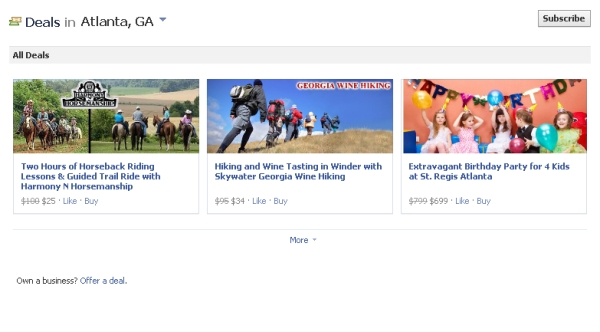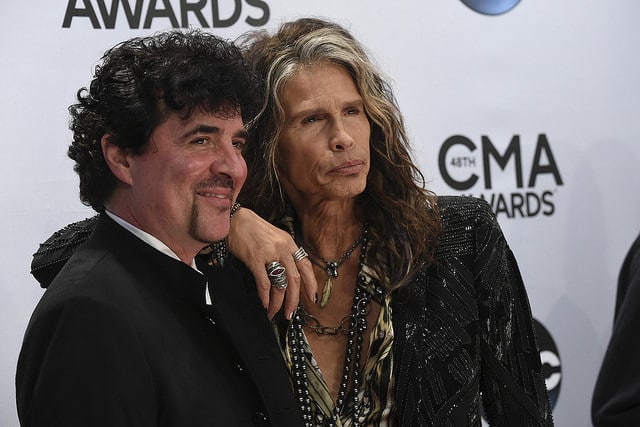Videos by American Songwriter
Today, Facebook entered the group buying space with the launch of Facebook Deals. Deals are currently available in Atlanta, Austin, Dallas, San Diego and San Francisco, with presumably more markets becoming available in the near future.
Facebook Deals will compete with deal giants like Groupon and LivingSocial. In the music space, some companies have also been quick to adopt their own deals services, such as Hello Music, which offers discounts on instruments and gear.
Facebook Deals seem to rely heavily on two existing features: Facebook Groups and Facebook Places.
Groups, which launched last October, is a feature based on an algorithm that suggests other people that users may be interested in “grouping up” with on the site. An obvious example would be your high school or college graduating class. Yesterday, Facebook announced that 50 million people had created groups since the feature launched six months ago.
Places is the the most direct descendant of Deals and shows how closely location-based and mobile applications may become in regards to group shopping. Facebook launched Places in November as a Foursquare-style location-based discounting service. On a user’s mobile phone, such as Facebook’s iPhone app, users could look for local deals around them with participating vendors like JCPenney and Starbucks. The Places feature was similar to FourSquare’s tips and specials as well as Scout Mob, which offers local deals for users that must be claimed on-site of the vendor.
As Fast Company points out in their analysis of Facebook Deals, the social media giant won’t focus on providing the deepest discounted deal but will instead emphasize the social experience of group shopping.
Interestingly, the concept of the “social experience” within group buying illustrates one problem that Groupon has faced. If, for example, 500 people bid on a discounted group coupon for a massage, not only might it not be an ideal group experience (500-person group massage, anyone?) but there have even been reported incidences where a business was not able to support the sudden influx of patrons.
What Facebook shows is that events are inherently social and that group buying should emphasize the communal experience of an event, not just the act of buying.














Leave a Reply
Only members can comment. Become a member. Already a member? Log in.